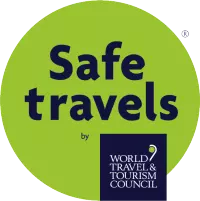Ethiopia (previously, also referred to as Abyssinia) is a country, situated in the East of Africa, in the so-called the Horn of Africa. The larger part of the country is situated on highlands or hills, and it is only the Eastern part of it is situated on lowlands.
The country is cross-sectioned by the Abyssinia Rift, being the northernmost part of the Great Rift Valley. It is commenced in the North, in the vicinity of the straits separating the Red Sea and the Gulf of Aden, with a wide depression of Afar, separating the Ethiopian Highlands and Somali Plateau.
Further on, it travels in the southern-western direction, forming a deep depression, the bottom of which is filled by the waters of lakes in several places. In the vicinity of Lake Turkana, next to the border between Ethiopia and Kenya, it is transformed into the East African Rift. Ethiopia’s variety is very well reflected in the programmes of our trips. Some of them emphasize getting to know the country’s nature, whereas others its culture and history. We also suggest going on a safari along Ethiopia’s wilderness areas and mountain trekkings. Our tourists stay in hotels, lodges or at campsites. Among offers with different prices, anyone can find something that can suit his or her budget.
The best time to travel to Ethiopia
The climate of Ethiopia makes it possible to travel in this country throughout the entire year; the time of our visit ought to be depending upon the region which we are visiting and the purpose of our trip. In Addis Ababa and in the North of the country, there are two occurring seasons of the year: the dry one (October – May) and the rainy one (June – September). In the South, in the Valley of the River Omo, it is different – it usually rains in April and May. Afterwards, a dry summer follows, and further precipitation, not so abundant any more, is in October. In the North of the country and in the Valley of the River Omo to an equal extent, rains do not make it impossible to go sightseeing, as it was the case once upon a time when the absence of roads used to make it difficult to move around. The temperatures are favourable throughout the entire year. In the northern part of the country and in the capital city, due to the altitude exceeding 2000 meters above the sea level, they amount to approximately 20 degrees Celsius during the day. In the South, it is hot and dry, as it befits the heart of Africa; in July and August. It is frequent for the temperature to reach more than 30 degrees Celsius.
Visas
The Ethiopian e-Visa Service resumed its service! https://www.evisa.gov.et/
Important Notice! We have come to know that there are some fraud websites which have similar look and feel with our official e-Visa website. Please note that the Ethiopian Government doesn’t have any agreement with the owners of those websites. Any visa application submitted or payment made through these websites is not acceptable.
The citizens of the European Union and between ten and twenty other countries (France, Germany, Greece, Ireland, Israel, Italy, Japan, Rep.Korea,France, Germany, Greece, Ireland, Israel, Italy, Japan, Rep.Korea kuwait, Luxemberg, Mexico, Netherlands, New Zealand, Norway, Poland, Portugal, Russia, South Africa, Spain, Sweden, Switzerland, Taiwan, United Kingdom, United States) obtain a tourist visa upon entering the Bole international airport in Addis Ababa; it is required that their passports ought to retain their validity for the period of six months since the day of entering the country. Photograph is not needed. The cost of a visa amounts to 50 USD. A tourist visa is a single-use one and it retains its validity for the period of 30 days. That period can be extended at the Immigration Authority in Churchill Road in Addis Ababa. It is better to apply for a multi-use visa prior to the departure at one of Ethiopian embassies, for instance in Berlin. The procedure usually takes one day. The maximum period of validity of it is 6 months.
Customs regulations
It is possible to carry with oneself, not incurring payment of customs, 200 cigarettes, 50 cigars or ½ kg of tobacco, 1 liter of alcohol, ½ liter or 2 bottles of perfumes. At the airport in Addis Ababa, it is possible to buy duty-free alcohol after having arrived there by plane. It is possible to enter the country with non-professional tourist equipment – no restrictions are imposed.
Language
The three main languages – Amharic (official), the Tigrai and Oromia languages The most popular foreign language – English
Prices and currency
The local currency unit, the Ethiopian birr, is divided into 100 cents 1 dollar – 18 Ethiopian birrs 1 euro – 22 Ethiopian birrs (2012) It is a good idea to exchange currencies at the airport after having arrived by plane. The exchange rate is the same throughout the country. Exchanging currencies in banks, in particular in the areas distant from the main cities, is time-consuming at times. Credit cards are only accepted in a very small number of places: at airports and in larger hotels. The network of cash machines is very limited: there are a few in the capital city, and a small number in larger cities. It happens at times that it is impossible to pay money out of the machine, therefore, it is better to carry cash with you. The most popular foreign currency is the American dollar. The banknotes have to be new, produced after the year 2000.
Ethiopian Time
Universal time + 3 hours Making arrangements concerning meetings, it is worth remembering that the European manner of counting time is different than the Ethiopian one. There, the day is divided into 12 hours of day and 12 hours of night. Six o’clock in Ethiopia is 12 o’clock (midday) of Central European time. In international contacts, and in places popular with tourists, Ethiopians use our measurement of time.
Ethiopian Calendar
The Julian calendar is in use. A year is divided into 12 months, each counting 30 days, and thirteenth month, counting 5 (6 in a leap year) days. The difference between the year date in the Julian and the Gregorian calendars amounts to nearly 8 years. The Ethiopian New Year is celebrated on 11th September.
Practical information
The offices working hours are: Mo. – Fri., 8.30 a.m. – 12.30 p.m. and 1.30 p.m. – 5.00 p.m. The shops are open without a midday break till the late hours of the evening.
Travelling and Safety
Ethiopia is a safe and friendly country, however, it is possible for restrictions in travelling to occur here, that means next to the border with Eritrea and Somalia. International transportation is provided by coaches offering a very low level of comfort. It is possible to travel in a comfortable manner by coaches representing European standard from/to Addis Ababa, Bahir Dar, Jimma, Gondar, Mekele, and Dire Dawa. Air transportation – Ethiopian Airlines (www.ethiopianairlines.com) provide regular flights to all of the larger localities. This company is regarded as one of the best airline companies in Africa. It is a member of the Star Alliance. At the airport in Addis Ababa, the following airline companies: Turkish Airlines, KLM, Lufthansa, Kenya Airways, Egyptair, Kuwait Airways, Saudia, Emirates, Sudan Airways, Yemen Airways have their planes touching down as well.
Power supply
Power supply in the Ethiopian network of power supply amounts to 220 volts and frequency to 50 Hz. Electrical power sockets are the same like in Europe.
Information for drivers
Road traffic is the right-side one, and the network of roads has been thoroughly modernized in the recent years. It is possible to reach practically all places of importance for tourists on tarmac roads. In the open areas, for instance, during the journey through the Valley of Omo, it is necessary to use a four-wheel drive vehicle. Foreigners personally driving their vehicles are a rarity in Ethiopia. It is required that they have passed a complementary examination on the knowledge of differences in regulations concerning road use. It is not necessary to do it if we enter Ethiopia in our own vehicle. In the case of travelling further than within the capital city, it is customary to hire a vehicle with a driver.
Religions
Christianity and Islam are dominating religion. The majority of Ethiopian Christians belong to the Ethiopian Orthodox Tewahedo Church. Prior to entering a church or Mosque, one ought to take off his/her footwear. It is forbidden to smoke in the vicinity of churches, monasteries and mosques. Only priests are permitted to enter the holiest places in which the copies of the Arc of the Covenant are stored.
Health
In Ethiopia, there is no direct threat to health, but, due to the conditions which are different from the European ones, care ought to be maintained. Upon entering Ethiopia, no vaccinations are required. Some countries require that a certificate of having received a vaccine against yellow fever upon entering their territory after a previous stay in Ethiopia be held. It is so in the case of the Republic of South Africa. It is recommended by the World Health Organization that tourists staying in the South and West of the country use anti-malaria prophylaxis.







